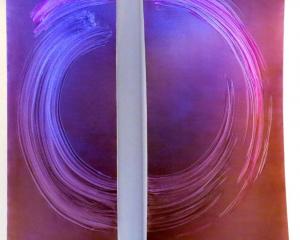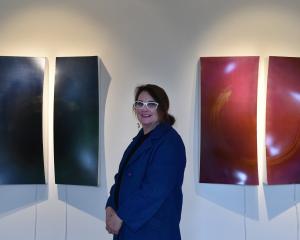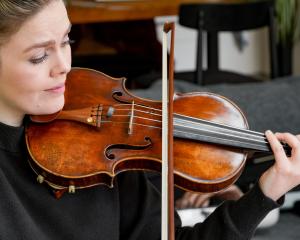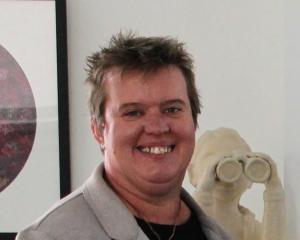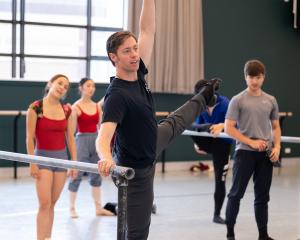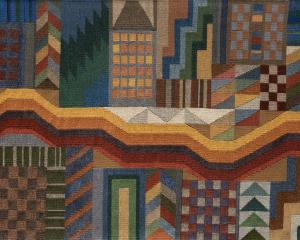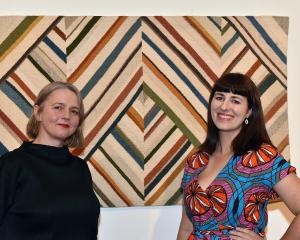
For nearly 20 years Zoe Marsden could be found on film sets painting and applying prosthetics to create the likes of dwarves and goblins.
The demanding career required ridiculous hours, leaving not a lot of time for her true passion - landscape painting.
While she fitted in some of her own work occasionally, the day job took precedence.
It is also what brought her to New Zealand.
Colleagues from her time on the Harry Potter movies in the United Kingdom suggested she come to New Zealand to work on Peter Jackson’s The Hobbit.
In New Zealand she met her partner Giles, another expatriate Brit, and discovered life with a four-minute commute - not the more than an hour minimum she had in London as a freelance artist - to work.
"I found a place where I could do my job with a lot more free time which meant I could do more artwork.
"I met my partner and thought I quite like Wellington, I’ll give up the M25."
So in 2014 she moved permanently to Wellington where she has stayed, continuing to paint and work as a prosthetics artist in the film industry until she fell pregnant with her first daughter who is now 4 years old.
The everyday use of heavy paints, solvents and chemicals in her job meant it was not suitable when she was pregnant so she gave it up.
"It gave me a brilliant space of time, where I couldn’t work, to go back to my own painting - almost 20 years ... after finishing my degree."
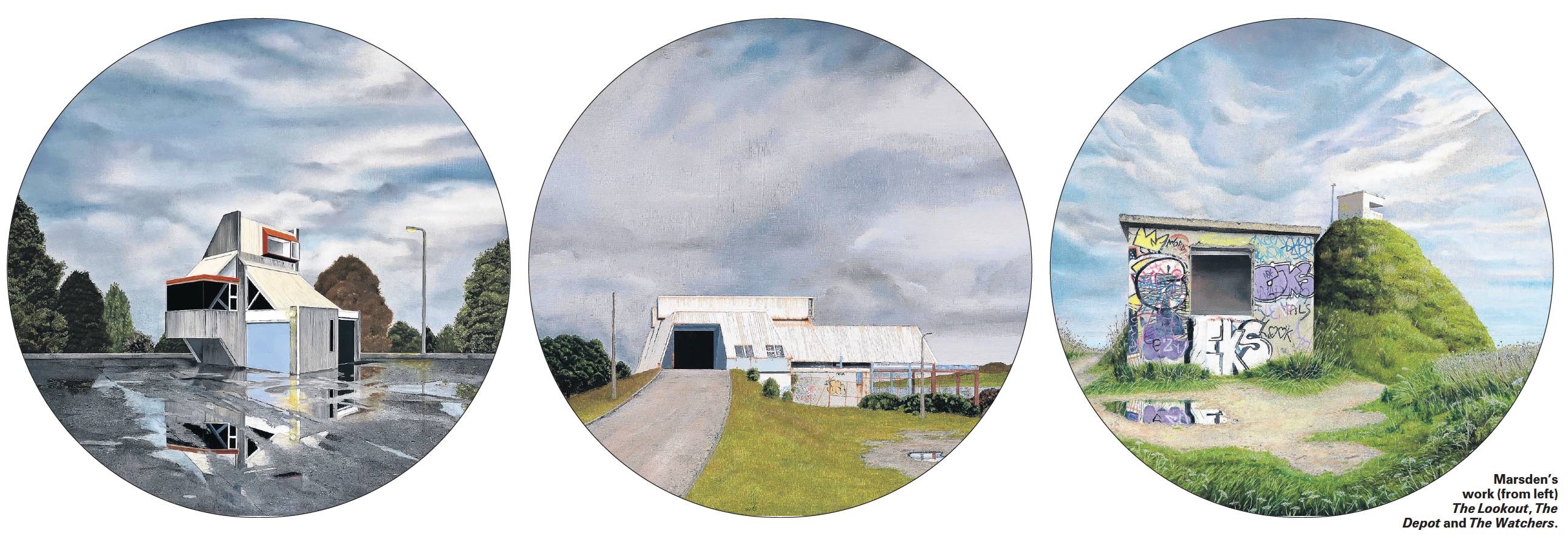
Marsden started out with a fine arts degree, finishing in 2002, and like many in the industry spent a few years paying the bills by waitressing in London while spending her down time in a studio painting.
But the continual struggle of living in London and paying off her student debt started to wear her down, so when she got the offer of a job painting for the film and television industry, she took it.
It led to jobs on major films such as The Hobbit as a prosthetic makeup artist, Thor, Star Wars and Harry Potter movies as well as television shows such as Game of Thrones, painting 3-D wax works at Madame Tussauds and working with major artists on their projects.
She also went back to study for a postgraduate qualification in scenic painting.
"It became my career for a long time. It was a financial decision."
The detailed prop work and painting skin and prosthetics became her specialty after she discovered the large scenic backdrop work was not for her.
"I’d get bogged down in the details. I’m better with a small brush than a big one, put it that way."
These days motherhood - she has a second daughter who is 22 months old and a 16-year-old stepson - has given her the opportunity to return to her own work and start to develop a practice.
"In some ways I’ve got less time than ever with two small children but now it’s the main focus [which] is great.
"It’s what I’ve always wanted to do and I’m very lucky to have a supportive partner "
Marsden has always painted urban landscapes or structures within bleak landscapes.
However, her work has moved over the years to more individual, isolated structures and then recently to derelict or abandoned buildings she has seen on drives or walks - such as Palmer Head Fortress, a defence post built in the 1930s in Wellington which sits above Lyall Bay overlooking the Cook Strait, which was portrayed in The Watchers.
"The themes are quite similar. They are places I am familiar with or have come across often by chance."
When she started painting again many of the buildings she painted were from the UK.
In Checkpoint she features two old portacabins being slowly taken over by nature which she discovered on a disused path in Hertfordshire which grabbed her attention.
In her Looming series she features two unused gas towers awaiting demolition positioned at the end of a walkway that she recalled walking beneath while she was a student.
"There was quite a nostalgic element to the paintings that sort of changed since being here, partly due to not being able to travel and not be able to wander around and go for big, long walks any more with young kids."
Then when she started getting out and about again, it was buildings she drove past or those mentioned to her by others who knew of her interest.
"It is important I visit them. I don’t work from photographs or off the internet.
"It’s important to get a sense of place. They’re forlorn, often airy or a bit enigmatic. They have a presence or a sense of unease ... [or] mystery about them. They’re often abandoned, derelict or had a former use.
"It’s that sort of presence or sense of unease I’m trying to capture in the painting."
Her works are not literal landscapes as the buildings are often relocated or the scenery around them is often altered to enhance the atmosphere of a piece.
The Lookout, the piece which won Wanaka’s Craigs Aspiring Art Prize recently, depicts a former police hut built overlooking the motorway in Thorndon, Wellington.
She was drawn to its unusual shape and darkened window, and felt the building was looking out at her.
But she altered its surrounding trees and lamppost, emphasising the reflections in the concrete to create the atmosphere and mood.
In Checkpoint she put the portacabins in a field of teasels - tall, thorny thistle-like plants.
One of the prize’s judges, landscape painter Sam Foley, told the ODT earlier that what appealed to him in The Lookout was the search by Marsden to find an almost banal subject, and then present it in such a curious way.
"For me, it’s such a strong image but also so subtly ambiguous in its nature. Really strong work, in my opinion."
Marsden likes to back that ambiguity up with a matter-of-fact, simple title for each work to ensure the viewer realises it is not a traditional landscape painting of a place and allow them to bring their own ideas to the work.
"If you locate them in a place it could cancel that out."
Her recent works have been small, something that had evolved along with the time she had to work on her paintings and from concentrating on a single structure.
She has always worked in oils as she loves their true colours and how they blend.
In the past she worked in mixed mediums but gave that up when she was pregnant and has not returned to it.
"I’m used to this way of working now."
With a studio in the garden, she is able to paint in the evenings after her daughters are in bed or at daycare and tries to be disciplined about her practice.
"I’m trying to treat it like a job, so I’ve got to be at the desk so to speak. Sometimes I’m tired but once I get into the flow it’s hard to stop. I have to make myself go to bed. It works really well for me at the moment."
As her daughters grow she hopes to spend more time painting, eventually getting to paint fulltime as long as finances allow.
The $20,000 Aspiring prize means she will be able to invest more into her painting and hopefully travel back to England with her family and attend a family wedding in France.
"My dad died in March which highlighted how important family is, so it is amazing that we might be able to afford to do that now."
To see


